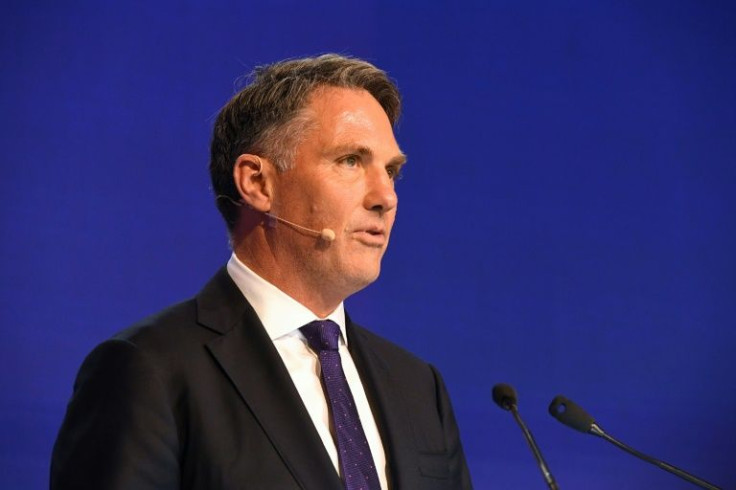China 'Biggest Security Anxiety' For Both India, Australia: Australian Deputy Prime Minister

KEY POINTS
- Australian deputy prime minister Richard Marles' remarks came as New Delhi hosted the India-Australia 2+2 ministerial dialogue
- India and Australia's defence and foreign ministers were part of the annual talks about the bilateral relationship
- The talks took place right after the India-US 2+2 Ministerial Dialogue was hosted by New Delhi earlier this month
Australian deputy prime minister and defense minister Richard Marles described China as the biggest trade partner and source of anxiety for both Australia and India, during his visit to the Indian capital city of New Delhi.
Marles' remarks came as New Delhi hosted the India-Australia 2+2 ministerial dialogue, where the countries' defense and foreign ministers met for annual talks about the relationship between the two Quad partners.
India's foreign minister S. Jaishankar, his Australian counterpart Penny Wong, and Indian defense minister Rajnath Singh were also part of what was the second edition of the 2+2 ministerial dialogue.
The annual talks between Australia and India took place right after the U.S.-India 2+2 Ministerial Dialogue was hosted by New Delhi earlier this month.
"We are two countries which share history. We share democratic traditions. We share rule of law and freedom of speech. We share this in a world where our strategic alignment is greater than it has ever been. For both of us, China is our biggest trade partner, for both of us China is our biggest security anxiety," Marles said Monday.
India and Australia not only share the same ocean, but also similar concerns about China's military muscle-flexing in the region.
A free and open Indo-Pacific has been an issue of grave concern among Quad partners, as Western powers increasingly see Beijing's actions in the region as part of its overarching campaign for more control and power. India, which is locked in its own brawl with neighboring China, has forged closer ties in recent years with the U.S. and other Western powers over shared views regarding Beijing's hostility.
India and Australia have expressed their commitment toward promoting peace, security, stability and prosperity in the Indo-Pacific region in the past and are also boosting trade and investment ties.
"Our bilateral relationship has certainly grown rapidly but it has larger implications for the region and a lot of other countries look to us and to our relationship in many ways as a factor of stability and security," India's Jaishankar said Monday.
"We are seeing sharper polarization, deeper stresses and today... it is important to ensure that the routine is there for the region to feel safer. So, we have to build and act for stability on a daily basis," he added.
As he noted India and Australia's comprehensive strategic partnership, Jaishankar said, "Our partnership in the Quad format (comprising Australia, India, Japan, and the US) has been very beneficial for the Indo-Pacific region and indeed our own bilateral relationship."
On Tuesday, India and Australia vowed to deepen their economic and security partnership and asserted their mutual commitment to a "free, open, inclusive and rules-based" Indo-Pacific, Jaishankar said, while addressing a press conference.
© Copyright IBTimes 2025. All rights reserved.






















